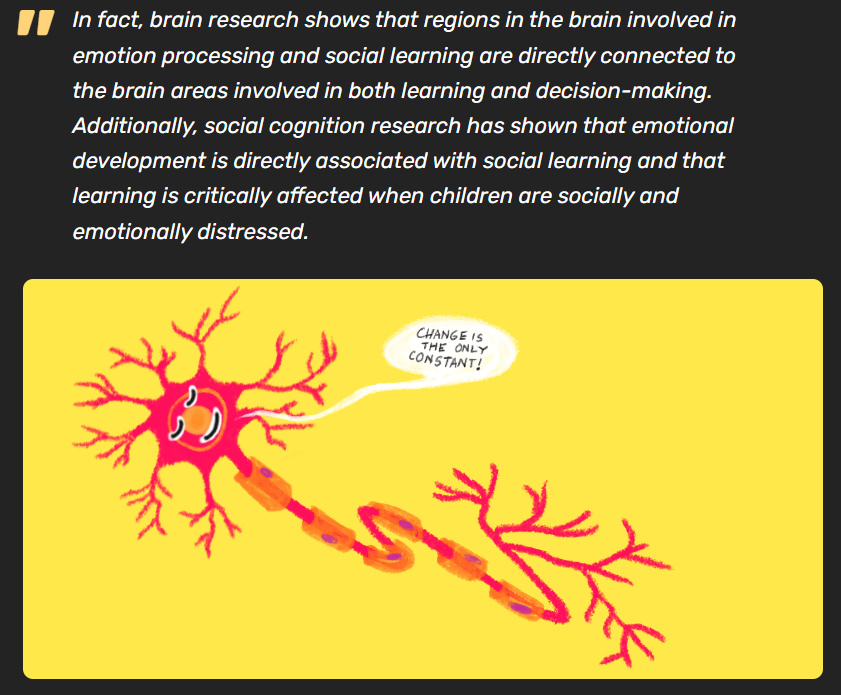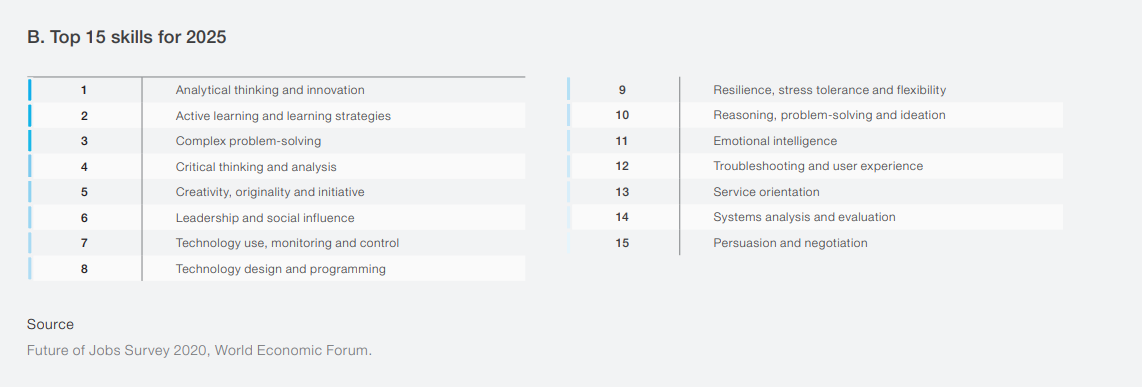Blog: Why Social-Emotional Learning?
“A child who enjoys learning portrays the right attitude such as grit and determination, is healthy social-emotionally and is able to work in a team would be able to do so much more than one who is pushed solely in achieving academic success.”

While many parents consider the need for their children to recognise either their ABCs or 123s as the utmost priority in preschool, there has been a growing voice in recent years to ensure a greater emphasis is given to a child’s social-emotional learning (SEL). In fact, today, SEL is considered the key element that best represents school readiness and the most sought-after skill for 21st-century working and leadership ability.
In fact, this resonates with the findings over the years, where the traditional definition of school readiness—the ability for a child to succeed in a structured learning environment that stresses literacy and numeracy skills has been replaced with a more contemporary definition.
A new definition that promotes a holistically developed child—physically healthy, mentally attentive, emotionally stable and socially competent—a child who is ready to transition into a volatile and thought-provoking learning environment, with intelligence, composure, clarity and curiosity.

Additionally, numerous findings over the years, suggest future job scope requiring essential skills such as (1) analytical thinking and innovation, (2) active learning strategies, (3) complex problem-solving and so on, all pointing directly to a strong and loud call for individuals with social-emotional competence. Making it clear that, it is high time that as a nation, we too understand the need to have a paradigm shift in our thinking and together, prioritize SEL.

However, this then leads to the question: what is the disposition of a child equipped with healthy s0cial-emotional skills? How do we know that our children are on the right track?
Simply put, a child with healthy social-emotional skills enjoys learning and is one who shows grit and determination despite the setbacks, he or she is able to work in a team and would be able to do so much more than one who is pushed solely in achieving academic success. As such, early learners should be guided and supported in nurturing their social-emotional competence, especially during this vital period.
So, what can we do?
Firstly, as parents and guardians, we truly need to check on how our children are doing social-emotionally! Often overlooked but powerful questions like “How are you feeling? Are you feeling safe? Do you think you’ll want to talk to me if you are not feeling okay?”, are some examples of what we should ask our children, and simultaneously be prepared to listen to their honest and heartfelt answers. Moreover, we then need to take the necessary actions which could be translated as providing positive affirmations and removing negative self-perceptions to our children.
Secondly, it is undeniable that it is the early childhood educators who play a vital role in bringing social-emotional competence-rich lessons into the classroom. While an ideal situation would portray top-down support, whereby emphasis is given from the education ministry with unlimited access to appropriate play-based lessons and materials, it is probably the educator's role to source out and make time for such lessons in the classroom, ultimately.
Lessons packed with promoting social-emotional competence must be embedded with the designed curriculum, moreover, these lessons have to be crafted and customized based on class composition and real-life observations. It is also possible that some of these lessons may require revision, instead of an ‘I have conducted and can now check-off this topic off my yearly curriculum’ approach.
"...A child with healthy social-emotional skills enjoys learning and is one who shows grit and determination despite the setbacks, he or she is able to work in a team and would be able to do so much more than one who is pushed solely in achieving academic success."
Clearly, then professional training comes in handy and the teacher’s personal conviction towards the importance of social-emotional competence as a primary contributor to school readiness would then become the push factor. Simply put, all would agree that an early educator who constantly reads and equips herself with global changes and research concerning the early years has a higher percentage to prioritize SEL in her classroom as opposed to those who choose a career in early education as one that merely requires them to teach ABCs and 123s to preschoolers or kindergarteners.
Likewise, a creative, passionate and tech-savvy early childhood educator has a better chance to source out and customize appropriate SEL lessons as opposed to those who only stick to the traditional approach that consists of using numerous workbooks and rigid academic-based curriculums. These skilled educators would also promote collaborative measures to include parents in their efforts to promote Social-Emotional Learning (SEL), under their care.
Finally, a push must be given from the Ministry of Education to ensure early learners are focused on producing holistic children in its truest sense to ensure school readiness and raise competent leaders. This could simply be done through several measures:
- Introducing both educators and parents to the right definition of school readiness.
- Equal importance to a child's social-emotional well-being alongside developmentally appropriate academic-based requirements for grade one enrolments.
- A push towards a preschool schedule that promotes social-emotional competence activities over academic competence
- Due recognition to educators who successfully adopt such practices. In fact, early educators who can bring rich social-emotional competence lessons into the classrooms, should become inspectors who monitor, audit and train their peers.
The Ministry can also gain many insights and recommendations from leading countries that have successfully adopted a curriculum design that is built upon promoting social-emotional competence within the early years. Many countries such as Australia, Finland, and Japan are all-embracing and recognising the importance of social-emotional learning and its profound influence on school readiness and raising global leaders.
If one were to take a moment to pause and ponder and to ask, “What is the potential of social-emotional competence and why is it such a big deal in today’s time and even in the years to come?”
Perhaps, it is the reality that in a world that is rapidly changing and with infinite information accessible at our fingertips, what is most important, is that our children must rise above all of these, remain wise, decide critically, work in unison and yet smile, cherish and truly succeed in making the world a better place.
They must gradually evolve into tomorrow’s leaders who require creativity yet sound judgment to face tomorrow's uncertainties. And this can only be done if they are ready, or in other words, there are individuals equipped with social-emotional competencies.
Are you ready to do your part to invest in your child’s social-emotional needs?
I am.